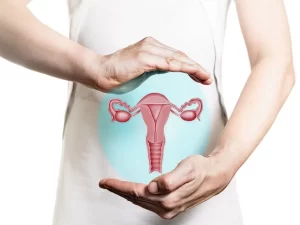
The compact ventilation system for PPE kits will help frontline healthcare workers
Mumbai’s Nihaal Singh Adarsh has invented Cov-Tech, a compact ventilation system for PPE kits. A second-year student of KJ Somaiya College of Engineering explained the experiential difference Cov-Tech makes to the Corona Warrior wearing the PPE and said, “Cov-Tech ventilation system is like you are sitting under the fan even while you are inside the PPE suit. It takes the surrounding air, filters it and pushes it into the PPE suit. Normally, due to lack of ventilation, it is hot and humid within the PPE suit; our solution offers a way out of this uncomfortable experience, by creating a steady air flow inside.”THIS CAN BE YOUR ADVERTISEMENT
The design of the ventilation system ensures a complete air seal from the PPE kit. It provides a breeze of fresh air to the user in a gap of just 100 seconds.
Adarsh participated in a design challenge for COVID-related equipment, organised by Technological Business Incubator, Research Innovation Incubation Design Laboratory. The design challenge led Adarsh to work on the prototype. With guidance from Dr Ulhas Kharul of National Chemical Laboratory, Pune, Adarsh was able to develop the first model in 20 days.
Dr Ulhas runs a start-up that researches a membrane to filter air, to prevent the spread of COVID-19. Adarsh got the idea about what type of filter he should use, to achieve an optimum balance between filtration efficiency and airflow quality.
Adarsh got support from Somaiya Vidyavihar University’s RIIDL (Research Innovation Incubation Design Laboratory), supported by the National Science & Technology Entrepreneurship Development Board (NSTEDB), under the Department of Science & Technology, Government of India.
After more than six months of hard work, the initial prototype emerged. It was neck-mounted, sucking in air through U-shaped air inlets, and had pillow-like structures which could be worn around the neck.
Nihaal gave it to Dr Vinayak Mane of Pune for testing. “We wanted this prototype to be tested by some unbiased doctors and hence approached Dr Vinayak Mane. He pointed out that wearing it around the neck will be a big discomfort for doctors and healthcare workers, due to the constant sound and vibration the device emitted. So, we discarded the prototype and started working on further designs.”
This aspiration for perfection led to the development of around 20 developmental prototypes and 11 ergonomic prototypes till the final product emerged. For this, he got help from Gaurang Shetty, Chief Innovation Catalyst at RIIDL and CEO, Dassault Systems, Pune. The state-of-the-art prototyping facility at Dassault Systems helped Nihaal develop prototypes effectively and at ease.
The product can be worn around the waist, just like a belt. It can be attached with the conventional PPE kits. This design serves two purposes It keeps the health workers well-ventilated while preventing bodily discomfort and keeps them safe from various fungal infections.
Since the ventilator is worn close to the body, high-quality components have been used and safety protection measures have also been taken care of, informs Adarsh. “When I told my mom that I am going to file a patent for this product, she was very happy. Being a General Physician, my mother uses it whenever she goes out for work.” The system comes with a lithium-ion battery which lasts for six to eight hours.
The Cov-Tech Ventilation System became a reality, thanks to a Rs 10,00,000- grant for prototype development and product innovation, which Adarsh received from NIDHI’s PRomoting and Accelerating Young and ASpiring technology entrepreneurs (PRAYAS), of the Department of Science and Technology, Government of India.
The budding entrepreneur had created a start-up called Watt Technovations, under the umbrella of which the ventilation system was developed. Besides the PRAYAS grant, the startup also received the support of Rs 5,00,000, from New Venture Investment Programme, conducted jointly by RIIDL and KJ Somaiya Institute of Management.
Ritwik Marathe, a second-year student of Design Engineering and his batchmate Sayli Bhavasar also helped Adarsh in this project.
The final product is being used in Sai Sneh hospital, Pune and Lotus multi-speciality hospital, Pune. The company plans to scale up its production in May / June 2021. The product costs Rs 5,499 per piece and is way cheaper than the competitive products which cost around one lakh rupees apiece. The team is trying to further reduce the price.
The first batch of the product is already out, with around 30-40 units which will be delivered as trial units to doctors/NGOs across the country. The next batch of around 100 units is also under production.








